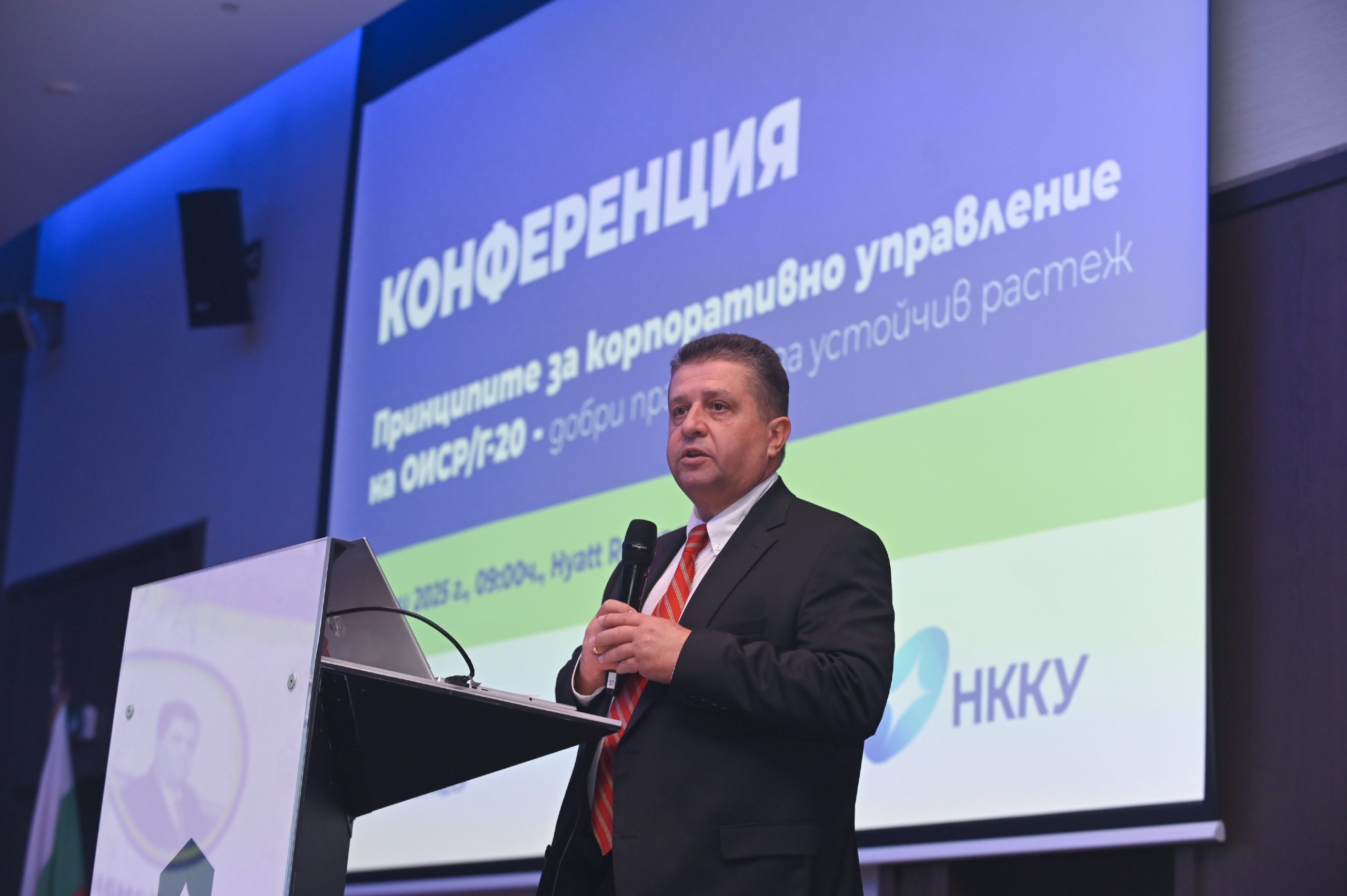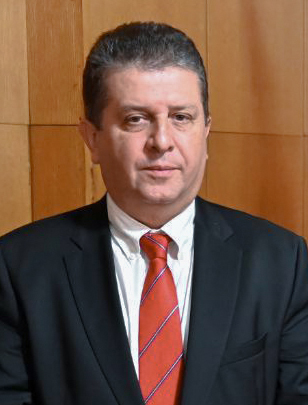The Financial Supervision Commission (FSC) has been notified by the competent authority of Spain of the merger from the insurance undertaking “GENERALI ESPAÑA, SOCIEDAD ANÓNIMA DE SEGUROS Y REASEGUROS” to “GENERALI SEGUROS Y REASEGUROS, S.A.”, including insurance contracts on which Bulgaria is a Member State where the risk is located. After reviewing the portfolio documents, the FSC decided to send a letter to the national competent authority of Spain on granting consent of the merger of “GENERALI ESPAÑA, SOCIEDAD ANÓNIMA DE SEGUROS Y REASEGUROS” to “GENERALI SEGUROS Y REASEGUROS, S.A.”
The Financial Supervision Commission has sent notification about its consent for the portfolio transfer from “MSIG Insurance Europe AG” to “MS Amlin Insurance SE”
The Financial Supervision Commission (FSC) has been notified by the competent authority of Germany of the merger from the insurance undertaking “MSIG Insurance Europe AG” to “MS Amlin Insurance SE”, including insurance contracts on which Bulgaria is a Member State where the risk is located. After reviewing the portfolio documents, the FSC decided to send a letter to the national competent authority of Germany on granting consent of the merger of “MSIG Insurance Europe AG” to “MS Amlin Insurance SE”.
The Financial Supervision Commission held a conference on: “OECD/G20 Principles of Corporate Governance – Good Practices for Sustainable Growth”
On the 11 of June, the Financial Supervision Commission (FSC/Commission), in partnership with the National Corporate Governance Committee (NCGC), organized and held a conference dedicated to “OECD/G20 Principles of Corporate Governance – Good Practices for Sustainable Growth.” The forum featured the exchange of experience and best practices relying on the corporate governance principles, ESG and governance, mechanisms for sustainable development of the insurance sector, and incentives for corporate engagement in capital pension schemes.
The event took place in Sofia and brought together the leadership of the Commission, supervised entities, amongst which public companies, investment intermediaries, insurance companies, and pension insurance companies, institutional partners, business representatives, the state, consultants, and media, all of them motivated by the purpose to discuss the role and importance of the corporate governance and sustainable development, as well as the challenges related to them.
The conference was opened by the Chairman of the FSC, Mr. Vasil Golemanski, who emphasized the importance of corporate governance as a key factor for investor confidence, financial market stability, and the promotion of long-term economic growth. He noted that over the past years, corporate governance has been amongst the leading priorities in the work process of the authority and the Bulgarian business, as well:
“In addition to fulfilling its role as a supervisory and regulatory body, the FSC also aims to actively support business pursuing the goal of creating sustainable and steadily developing markets.”
Mr. Golemanski pointed out that the Commission actively participates in the European Supervisory Authorities’ activity and represents the state in plenty of international organizations acting in the non-banking financial sector. He also stressed the role played by the regulatory authority in the process of the forthcoming accession to the Eurozone and drew the attention of the audience to the FSC contribution made in the process of the achievement of the national strategic goal, namely Bulgaria’s membership in the Organisation for Economic Co-operation and Development (OECD). In this regard, he emphasized the successful cooperation between the FSC and the OECD Corporate Governance Committee in developing and implementing the updated Principles of Corporate Governance, which were officially adopted in 2023:
“We made significant efforts, together with the Bulgarian Stock Exchange (BSE) and the National Corporate Governance Committee (NCGC) to integrate these principles into the new Code of Good Corporate Governance, adopted by the FSC on June 5 this year,” noted Mr. Golemanski, adding that the FSC will persistently work for the voluntary observance of the Code by supervised entities.
“We are convinced that good corporate governance is the foundation for building trust between investors and issuers and for the stable growth of the capital market. We believe that a significant number of issuers will comply with these principles not only because the FSC recommends them, but because they realize their role in creating a sustainable and transparent market,” he added.
Ms. Fianna Jurdant, Senior Policy Analyst at the OECD, also addressed the participants. She presented the updated OECD/G20 Principles of Corporate Governance, adapted to the dynamic economic and regulatory environment and aimed at achieving greater sustainability, accountability, and innovation:
“I would like to emphasize the key importance of the revised G20/OECD Principles of Corporate Governance, which represent a leading international standard in this field and are recognized by over 50 jurisdictions. They not only set standards for good corporate governance, but also provide guidance for building a legal, regulatory, and institutional framework, which fosters market confidence, economic efficiency, and financial stability. They are structured around six main pillars and reflect the evolution of global challenges and new trends – such as sustainability, digital risk management, the role of institutional investors, and the new expectations for boards of directors. The revised principles include specific recommendations related to transparency, accountability, investor protection, better shareholder engagement, and addressing systemic risks, including those stemming from climate change and technological transformation. Their strategic goal is to help companies improve access to capital, strengthen investor trust – including households investing their savings – and ensure the sustainable development of the corporate sector. This is why the OECD and the G20 adopted the new text of the Principles in September 2023 as a key instrument for the stability of financial systems globally.”
In the first panel, “OECD/G20 Principles of Corporate Governance,” moderated by Ms. Natalia Petrova, Chair of the National Corporate Governance Committee, emphasis was placed on the practical application of international principles in the Bulgarian context. Ms. Petya Hantova, Director of the Investment Activity Supervision Directorate at the Financial Supervision Commission, shared with the audience:
“At the core of a company’s success is good corporate governance, which is of paramount importance and just as important as building a good business plan. Corporate governance illustrates the way in which a company is strengthening its position of a self-supervising one, which deserves the capital of its investors and the trust of its shareholders, who provide it loans.”
Ms. Hantova pointed out, that more and more investors are interested not only in the figures, but also in the essence lying behind them, namely how companies implement corporate governance principles in their activities. She focused on the main pillars of corporate governance, which ensure that companies are responsible for their actions, operate openly and transparently, treat all stakeholders and parties fairly, and act responsibly towards society and the environment. In conclusion, Ms. Hantova emphasized that the essence of corporate governance is to protect shareholders’ rights, support the sustainability and vitality of companies, and improve the interaction between employees and the management body, terminating her message with the words “a company without system for corporate governance is like a body without soul and conscience”.
In her presentation, Ms. Natalia Petrova stressed the importance of sustainable development and ESG factors, the role and independence of governing bodies. She emphasized the circumstance, that “corporate governance is made by people” and highlighted in this regard the significance of the collaboration between business representatives, professional associations, and academia.
The discussion featured Mr. Angel Rabadzhiev (Board Member of the Bulgarian Association of Licensed Investment Intermediaries), Ms. Daniela Peeva (Chair of the Investor Relations Directors Association), Mr. Daniel Donchev (Board Member of the Bulgarian Association of Asset Management Companies), Mr. Nikolay Martinov (Independent Director of Shelly Group AD), Ms. Sofia Argirova (Investor Relations Director of Stara Planina Hold AD), and Mr. Stanislav Tanushev (Investor Relations Director of Sirma Holding AD). The focus was on best practices in managing public companies, increasing transparency and accountability, and the role of investor relations directors in building trust.
The panel “ESG and Corporate Governance: The Path to Sustainable Investments” was focused on the integration of ESG (Environmental, Social, and Governance) factors into corporate governance as a tool for long-term value and investor appeal.
Ms. Denitsa Velichkova, Deputy Chair of the FSC and Head of the Investment Activity Supervision Division underlined that ESG and corporate governance are not topics of the future, but of the present being in the middle of the today’s regulations and continuously gaining in importance:
“Until recently, we spoke of corporate governance and ESG observing them as two separate concepts: the first related to internal structure and accountability, while the second making an impact on the environment and society. Now we see that they are two sides of the same coin. Sustainable development is not possible without good governance, and good governance – without a strategic understanding of sustainability. Today’s investor expects not only returns, but also security, transparency, and a long-term vision. That is why the role of the regulator is evolving – to encourage sustainable dialogue, quality non-financial reporting, and the implementation of international standards, in order to make data comparable and reliable. Only in this manner we could build a real foundation for sustainable investments that are not driven by a trend, but by well-conceived strategy. It is important to declare, that ESG is not an ‘add-on’ to the standard business model. It represents a new investment culture that requires a shift in mindset – from minimum requirements to strategic vision. This is precisely where the role of corporate governance lies – to ensure a structure in which sustainability is part of the organization’s DNA.”
Panel participants, moderated by Assoc. Prof. Dr. Manyu Moravenov (CEO of the Bulgarian Stock Exchange AD) included Mr. Daniel Blum (OECD), Ms. Hristina Pendicheva (Ministry of Finance), Mr. Alexander Peev (CSR General Manager, UBB), and Ms. Daniela Sokolova (Telelink Business Services). They discussed the challenges of implementing ESG standards, the need to adapt to European regulations, and the role of sustainable governance in investment decision-making. Mr. Blum noted Bulgaria’s progress and the actions taken since 2023 toward its OECD membership:
“The country is heading in a very good direction and must continue to develop its market while maintaining the attractiveness of reliable companies,” he said. He added that while challenges remain, he is confident in Bulgaria’s success and sustainable development.
Assoc. Prof. Dr. Manyu Moravenov presented the first report by the Centre for Sustainable Finance and Energy (Green Centre), focused on how Bulgarian companies report their sustainability. The report showed that sustainable corporate behaviour is increasingly entering the practices of various sectors of the Bulgarian economy. Large banks show strong ESG policy integration, state enterprises demonstrate high social accountability, and public companies maintain established corporate governance practices.
Special participation in the conference came from Prof. Bistra Boeva – a long-standing expert in corporate governance and member of the National Corporate Governance Committee – who was awarded by Ms. Natalia Petrova, Chair of the NCGC.
The third panel of the event – “Sustainable Development of the Insurance Sector” – was moderated by Mr. Hristo Nikolov, business journalist from Bloomberg TV Bulgaria. Panelists – Ms. Kristina Petkova (Director of the Insurance Supervision Directorate, FSC), Ms. Rositsa Vartonik (consultant at the Association of Bulgarian Insurers), and Mr. Veselin Angelov (managing director at CEO of Allianz Bulgaria and Board Member of ABI) – explored mechanisms to ensure sustainability in the insurance sector in light of corporate governance. Topics included accountability and transparency, the need for effective supervision, as well as increasing the consumer trust and educational insurance culture. Ms. Petkova stated that the FSC would continue to follow EIOPA rules and monitor ESG reporting by companies.
The final panel – “Corporate Engagement and Long-Term Investments in the Pension Sector” also moderated by Mr. Nikolov was focused on the importance of flexible investment strategies aligned with the long-term interests of insured persons. Panelists – Ms. Milena Ivanova (Director of the Regulatory Regimes of the Social Supervision Directorate, FSC), Mr. Nikolay Slavchev (General Methodologist at Pension Assurance Company Allianz Bulgaria AD), and Mr. Miroslav Marinov (Managing Director at Pension Assurance Company Doverie AD) – discussed the opportunities for corporate engagement through sustainable and long-term investments including the role of pension funds in corporate governance and the implementation of the multi-fund model in supplementary pension insurance.
As result of the conference, the FSC reaffirmed its commitment to comply with the best international practices in the corporate governance for building transparent and stable financial markets and creating conditions for sustainable development of the non-banking financial sector in Bulgaria.
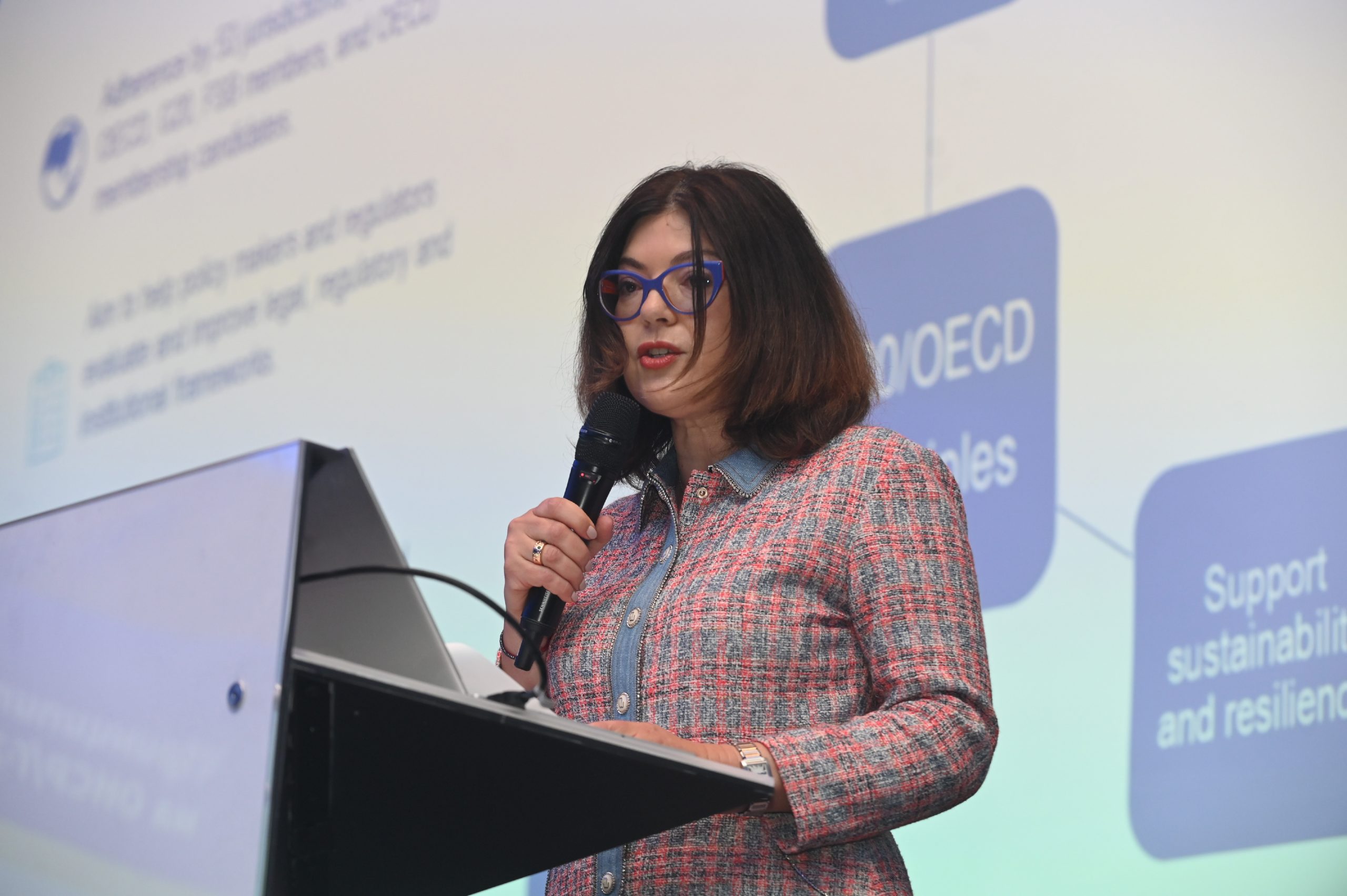




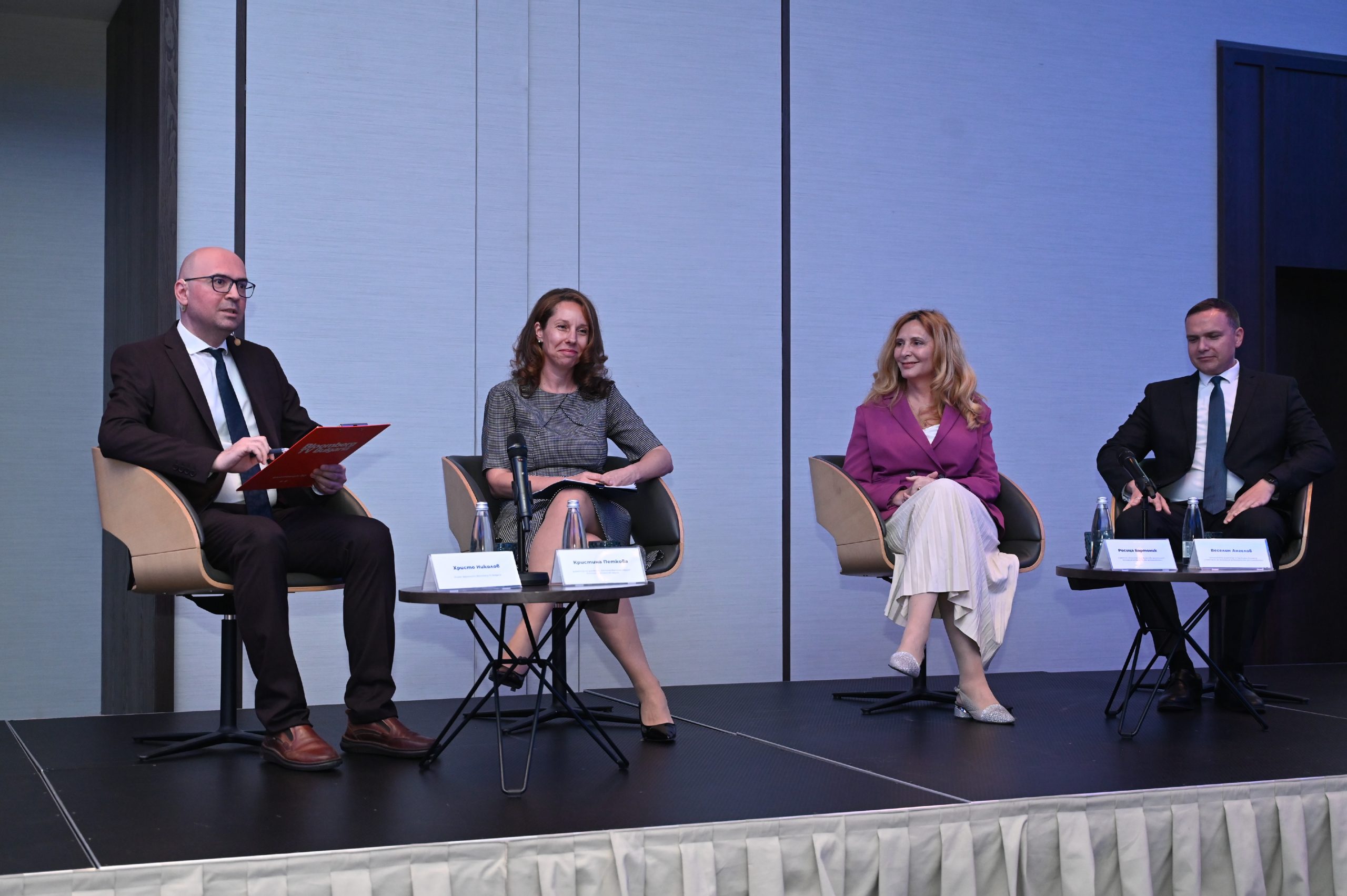
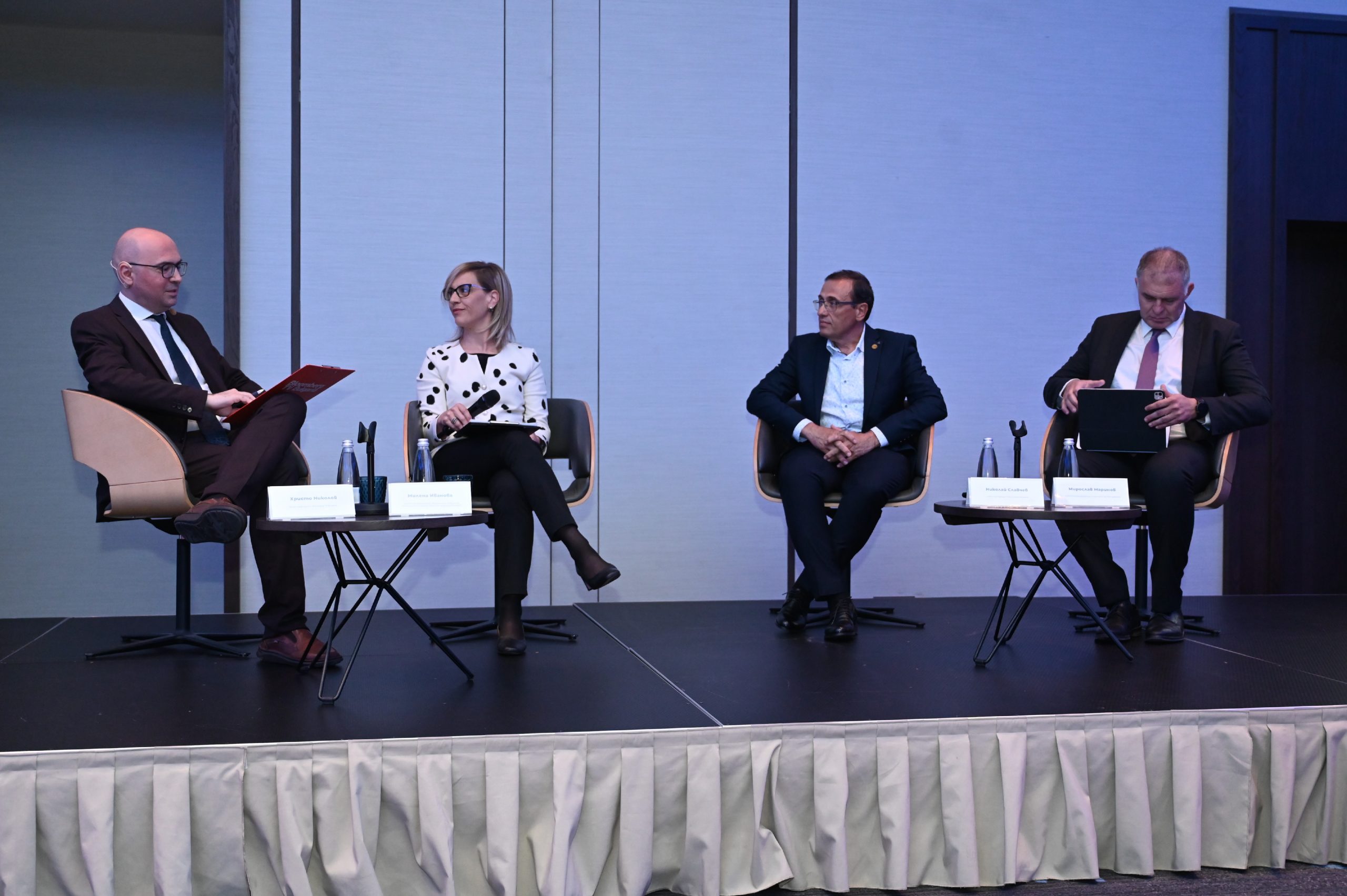
FSC imposed a temporary ban on the provision of new and the extension of the term of existing cross-border products and services provided by ZAD DallBogg: Life and Health AD
The company’s activities in Bulgaria are not affected by this measure
On 10 June 2025, the Financial Supervision Commission (FSC), the Bulgarian supervisory authority of the insurance sector, imposed a temporary ban on the provision of new and the extension of the term of existing cross-border products and services of ZAD DallBogg: Life and Health AD (ЗАД „ДаллБогг: Живот и Здраве“ АД) – under the freedom to provide services across the European Economic Area concerning all classes of insurance for an initial period of 3 months as of 1 July 2025.
The insurance business activities of ZAD DallBogg: Life and Health AD will continue as usual in all Member States until 30 June 2025 (incl).
FSC, as the home supervisory authority, is in close contact with ZAD DallBogg: Life and Health AD to ensure effective consumer protection and fair treatment of all policyholders. FSC is also working on defining the conditions that ZAD DallBogg: Life and Health AD would have to meet for therestriction to be lifted. All concerned National Competent Authorities are closely cooperating.
More details will be provided shortly.
The Financial Supervision Commission has sent notification about its consent for the portfolio transfer from “The Standard Club Ireland DAC” to “NorthStandard EU DAC”
The Financial Supervision Commission (FSC) has been notified by the competent authority of Ireland (CENTRAL BANK OF IRELAND (CBI)) of the merger from the insurance undertaking “The Standard Club Ireland DAC” to “NorthStandard EU DAC”, including insurance contracts on which Bulgaria is a Member State where the risk is located. After reviewing the portfolio documents, the FSC decided to send a letter to the national competent authority of Ireland on granting consent of the merger of “The Standard Club Ireland DAC” to “NorthStandard EU DAC”
The National Assembly elected the vice-chairpersons of the Financial Supervision Commission
On the 15th of May, the National Assembly elected Denitsa Velichkova as Deputy Chair of the Investment Supervision Division, Diana Yordanova as Deputy Chair of the Social Insurance Supervision Division and Plamen Danailov as Deputy Chair of the Insurance Supervision Division.
From the parliamentary rostrum, the Chairman of the Financial Supervision Commission, Mr. Vasil Golemanski, presented the candidates for Deputy Chairpersons, highlighting their years of extensive professional experience within the structures of the state administration and the financial sector. He emphasized their readiness for open and constructive dialogue. In accordance with the selection procedure, they were also presented by him on April 29th to the Budget and Finance Committee, which listened to their concepts for the development of the three supervising sectors and their views on their future responsibilities.
Regarding the supervision of investment activity, Ms.Velichkova outlined three main areas – regulatory activity and control, increasing investor confidence in the capital market in Bulgaria and increasing financial literacy in order to ensure sustainable and transparent development of the financial sector; “I believe that the main directions for the development of the Bulgarian financial market are related to increasing liquidity, ensuring the possibility of financing new companies through the capital market, accelerating the growth of the economy in the medium term and improving the image of Bulgaria on the international map of regulators in the non-banking financial sector, and, of course, as an extremely important priority, better positioning of Bulgaria on the “investment map of Europe”. My key messages to the investment community are dialogue, interaction, partnership, because I believe that regulatory activity is not an end in itself, but a two-way process of building trust and a predictable environment for business. I want to stress that the most important end result is to improve Bulgaria’s image as a place for good investments.”
Furthermore, she elaborated her concept with synchronising regulatory frameworks with European standards, creating the necessary conditions to facilitate retail investor’s access to investments in government securities, reducing administrative and regulatory burdens, introducing digital solutions, rigorously enforcing key components of ESG policies and fostering a better investment culture over the long term by introducing specialised education in educational institutions.
For the development of the Social Insurance Supervision Division, Ms. Yordanova will follow and defend the maintenance of beneficial and constructive dialogue based on professionally substantiated convictions; active cooperation with the legislative and executive authorities, industry organizations, sector representatives and social partners; participation in initiatives to increase financial awareness among the public and consumer satisfaction. She confidently stated that “social responsibility, high professionalism and committed partnership are the guarantees for clear and durable regulatory framework that contributes to the sustainable development of the pension system in Bulgaria, respectively an indisputably necessary mechanism for ensuring the adequacy and stability of public finances”. She specified that from now on she will impose a standard for conducting a predictable and consistent regulatory and supervisory policy, “the consequences of which are stability and trust in the supplementary pension insurance sector – a sector of the highest public importance.” It became clear from her presentation that the dynamics in the development of capital markets and the possibilities for diversification of savings of people of working age increasingly require providing consumers of pension insurance services and products with a choice between different investment strategies, taking into account their life cycle and risk tolerance: “By creating funds with different investment profiles and improving incentives for investment management, including reducing fees and deductions, better results are achievable. This conclusion is indisputable and is based on the data published annually by the OECD. From a supervisory standpoint, guaranteeing the funds of insured individuals, including in unfavorable economic conditions and the effective distribution of biometric risk in relation to those receiving payments is of particularly high priority.”
Regarding insurance supervision, Mr. Danailov shared that his strategic priorities are related to the creation of a predictable and transparent legislative initiative, support for innovation and new products, focus on consumer protection, a stable and financially sustainable insurance market, “which can respond to the challenges we are facing.” He stated that he would work on the digitalization of the sector, from the perspective of the development of online insurance, the creation of digital platforms and mobile applications, the use of the possibilities of artificial intelligence to reduce the administrative burden, because “the sector requires modern regulatory solutions, predictability and consistency in actions, in view of the entire dynamics of the economy and society.”
During his presentation, he touched upon the topics of the “bonus-malus” system, the “green card”, double auditing of insurance companies, climate change, the adoption of European directives, compliance with ESG standards and the principles of good corporate governance, their impact on insurance activity, digital risks from the perspective of cyber insurance, as well as raising financial literacy in all the directions described above. For the management of insurance supervision, he said: “The insurance sector is a highly specific and interesting area because, by its very nature, it embodies a promise of compensation when certain adverse events occur that no one wants to occur. This promise involves a great deal of trust, which means effective and well-functioning supervision. The main function of supervision is to protect the interests of users, of people who have policies, whether individuals or legal entities, to monitor the financial soundness, transparency and efficiency of insurance and reinsurance companies, but the main focus is on the users of these services.”
After the vote, Mrs. Velichkova, Mrs.Yordanova and Mr. Danailov swore an oath in Parliament and thanked the members of the Parliament from the tribune for the vote of confidence.
You can see full FSC Board here.
Statement by Mr. Vasil Golemanski, Chair of the Financial Supervision Commission in the quarterly bulletin of the Association of Banks in Bulgaria
Integrated Capital Markets: Bulgaria’s Path to Sustainable and Innovative Finance
In times like these, the direction of development is not dictated by circumstances but by the choice to act purposefully with a clear vision. As Europe strives for better integration of its capital markets, Bulgaria must not only catch up but also be part of the change towards sustainable and innovative finance.
A strong banking system remains the backbone of the economy, but the new realities require more – more flexible forms of financing, digital connectivity and transparent access to investments. For long time now it’s not just about regulations, but about building an ecosystem in which markets develop sustainably, businesses grow and citizens participate in an informed way.
Change is underway. The Digital Operational Resilience Act entered into force across the EU in 2025 and sets specific requirements for the financial sector regarding cybersecurity and ICT risk management. At the same time, the MiCA Regulation, which represents the first EU framework for regulating crypto-assets, is already in force and national legislative measures, implementing the Regulation, are about to be adopted by the Bulgarian Parliament. These initiatives are clear signals that the financial system is moving towards higher standards of security, innovation and trust. In this context, the Financial Supervision Commission organised an important conference for the non-banking financial sector, promoting the joint work in the process of implementing the two regulations and the achievement of resilient environment.
It is often spoken of the Eurozone as a political goal, but for those who are busy in the capital markets’ area it has a broader significance, it is an affirmation that Bulgaria should be observed as a stable and predictable partner. The accession will eliminate currency risk, reduce transaction costs and facilitate cross-border investments. These opportunities should not be missed. The Financial Supervision Commission, as a responsible authority directly involved in the process of the Republic of Bulgaria’s accession to the euro area, monitors the progress of all supervised entities in introducing the euro in the non-banking financial sector.
The results of the survey conducted by the Financial Supervision Commission indicate that the preparation of the non-banking financial sector for introduction of the euro is at a very advanced stage. Many participants have already taken concrete steps for adaptation, amongst them updated internal plans, informing customers and partners, and information systems updates. Despite the progress, there are still sectors, like the technology and the regulatory one, which need to be improved.
The Financial Supervision Commission actively works to upgrade supervisory capacity through innovative digital tools, supports sustainable financing and ESG standards, and promotes a culture of openness and transparency among market participants. Apart from that, it acts as one of the initiators of the process of implementing the principles of corporate governance in Bulgaria, following internationally recognized standards for transparency, accountability, effective supervision and protection of shareholder rights. It is a key part of the requirements set by the OECD to strengthen confidence in the financial sector in Bulgaria. Ensuring good corporate governance not only improves the stability of markets, but also attracts new investments and supports the long-term growth of the economy.
The insurance sector and the pension funds have the actual potential in becoming a sustainable source of financing for the economy. The multi-fund model already allows consumers to choose between different investment strategies in accordance with their life cycle and risk tolerance. The next step is to fully use this tool to direct savings towards productive investments and to support the real economy.
For the market to be vibrant, it needs active and well informed participants. This means better financial literacy, digital solutions for access to products and clear communication. The development of capital markets in Bulgaria cannot be left to the natural course of events – it requires strategic vision, institutional capacity and broad public support. Only through partnership between the public and private sectors, through innovation and trust, can we build a modern and sustainable financial environment.
In 2025, the Financial Supervision Commission has set itself the goal of demonstrating that the power of regulation is not in restriction, but in creating an environment for trust, innovation and growth. Stable supervision, a predictable regulatory framework and an open dialogue with the participants in the sector – this is the model by which Bulgaria confirms its place in the heart of the European financial architecture.
You can see the entire newsletter here.
Vasil Golemanski is the new Chair of the Financial Supervision Commission

Vasil Golemanski is the new Chairperson of the Financial Supervision Commission, elected by the National Assembly for a six-year term. He will replace the outgoing Chair of the Commission, Boyko Atanasov.
Vasil Golemanski has served as the Executive Director of the Central Depository since 2012. His professional career includes key positions at the Bulgarian Stock Exchange. He graduated from the Technical University – Plovdiv branch in 1991 with a degree in Electronics and Automation Engineering. In 2020, he earned a Master’s Degree in International Business from Southwestern University “Neofit Rilski” in Blagoevgrad.
My approach is that leadership should be based on authority, not force. Active dialogue is essential—both within the Financial Supervision Commission and with the supervised entities. Only through joint efforts can we develop effective strategies recognized by businesses and eliminate inefficient practices. The FSC’s unified position must be clearly communicated and understood by the public because stability is built on trust,” said Vasil Golemanski.
Among Mr. Golemanski’s priorities are transparency, active dialogue with supervised entities, digitalization, cybersecurity, strict supervision of the capital, insurance, and pension markets, and last but not least, a smooth transition to the Eurozone .
The Financial Supervision Commission has sent notification about its consent for the portfolio transfer from “Credendo – Short-Term EU Risks úvěrová pojišťovna, a.s.” to “Credendo – Short- Term Non – EU Risks SA”
The Financial Supervision Commission (FSC) has been notified by the competent authority of Czech Republic (Czech National Bank (CNB)) of the merger from the insurance undertaking “Credendo – Short-Term EU Risks úvěrová pojišťovna, a.s.” to “Credendo – Short- Term Non – EU Risks SA”, including insurance contracts on which Bulgaria is a Member State where the risk is located. After reviewing the portfolio documents, the FSC decided to send a letter to the national competent authority of Czech Republic on granting consent of the merger of “Credendo – Short-Term EU Risks úvěrová pojišťovna, a.s.” to “Credendo – Short- Term Non – EU Risks SA”
After the merger “Credendo – Short-Term EU Risks úvěrová pojišťovna, a.s.” intends to cease activities and “Credendo – Short- Term Non – EU Risks SA” will change its name to “Credendo – Trade Credit Insurance” and will continue to operate on the territory of the Republic of Bulgaria under the conditions of the freedom to provide services.
List of entities which are not authorized by FSC
You can find the list of the non-licensed Investment intermediaries in the attached file – 19.11.2024
